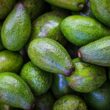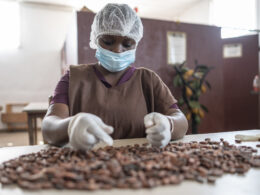Starting a commodity trading club in college can be a highly rewarding project that provides valuable hands-on experience in the trading industry. This guide covers essential steps and strategies to ensure your club’s success.
Practise Physical Trading
Ideally, your club helps members understand what to expect when landing a job as a commodity trader. Are you cut out to be a trader? Should you pursue a career in quant trading or coffee trading?
As a graduate trading trainee, you’ll most likely be performing trading support and helping with S&D analysis or joining the operations desk to learn about cargo flows.
Learn about those processes before the recruiting season and you’ll have an edge, so you’ll more easily land a job.
Supply and Demand Analysis
Understanding the dynamics of supply and demand is crucial in commodity trading. I can’t emphasize this enough. Organize workshops and study groups where members can:
- Analyze historical data and market trends.
- Use case studies to predict how changes in supply and demand affect prices.
- Simulate real-world trading scenarios to practice decision-making.
Operations Monitoring
Monitoring the operational flow includes tracking logistical aspects such as transportation, storage, and delivery. Ideally you’ll be focusing on how to :
- Utilizing Excel and other python/SQL to track and model operations.
- Understanding the impact of logistics on trading strategies.
- Monitor market movements to identify potential disruptions and price dislocations.
Learn About Commodities
Possibly the best way to get started is by reading the best books about commodities. This includes Oil 101, the Yergin saga, Smil’s books on Energy, The King Of Oil, and more.
Listen to the best podcasts, such as HC Commodities or Strong Source.
Remember that the more you know, the easier will it be to land commodities jobs and to do well in the first few months at work. This is super important.

Seeking Industry Partnerships
Building connections with industry professionals will provide your club with valuable insights and internship / junior opportunities. To establish these partnerships:
- Reach out to alumni working in commodity trading firms. This is probably the best way to get started.
- Contact local trading companies and service providers to propose collaborations like internships or guest lectures. Many companies in the industry will appreciate a pipeline of motivated junior candidates.
- Attend industry conferences and networking events to establish contacts. This will help you down the line, after all, it’s basically the role of a trader: connect, generate trust, and close deals.
You also want to contact the local authorities at ports, rail freight terminals, chambers of commerce, and beyond. You want to create a network of contacts and companies who are present across the supply chain.
Raising Funding
Securing funding is critical for the sustainability of your club and will help you with paying for events. Ideally, you want to raise enough funding so as to manage a small portfolio of commodities. Consider these methods:
- Apply for grants from your university or student organizations.
- Organize fundraising events such as trading competitions or seminars.
- Seek sponsorships from local businesses and industry firms, as well as alumni.

Preparing For HR Interviews
Helping your members prepare for HR interviews can significantly enhance their career prospects.
But first, start and implement the following strategies:
- Conduct mock interviews with industry professionals.
- Offer resume and cover letter writing workshops.
- Provide resources and guidance on common interview questions and best practices.
Remember that the best thing you can do is to learn how to perform good S&D analysis, how to sell and manage commercial relationships, and how to analyze and trade in the global markets. This will help you immensely when interviewing with real traders.
Speaker Events
Hosting speaker events can provide members with industry insights and inspiration. To organize successful events:
- Invite experienced traders and industry experts to speak about their careers and market trends.
- Collaborate with other clubs or departments to increase attendance and share costs.
- Record the events and share them with members who cannot attend.
By focusing on these core areas, your university commodity trading club can provide a rich, educational experience for its members and foster a deeper understanding of the trading industry.

Create An Engaged Community
Possibly the best opportunity for you and the team is to gather a team of highly motivated commodity enthusiasts.
Focus on getting the right people on board, who will end up all across the industry. These friends of yours now will become the industry leaders of tomorrow.
Club alumni will be your best allies to get the best out of your current cohort.
Try to connect with other clubs at other universities. This will allow for cross-university contacts, and will likely simplify your process of getting speakers and job leads.
Design A Team Structure
Split the work with your fellow team members. This will allow you to do more and share the merit.
I suggest the following structure
- President
- VP of Metals & Minerals
- VP of Agri
- VP of Energy
- VP of Commodities Research
- VP of Quant Trading
The structure above combines both functional and market-specific roles. The structure should probably be tailored to your individual characteristics.
For example, if you’re studying in a polytechnical or STEM university, you may want to add further quant titles.
Alternatively, you may want to split the commodity groups into individual commodities if you’re at a business school.
Next Steps
To get your commodity trading club off the ground, gather interested students and set up an initial meeting.
Assign roles for supply and demand analysis, operations monitoring, and fundraising. You can then add them to your LinkedIn profiles.
Reach out to industry professionals for partnerships and invite them to speaker events. Organize regular training sessions on physical trading and interview preparation. Finally, apply for university grants and seek local sponsorships to ensure financial stability.








